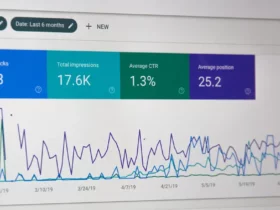If you run an online business, one of your top priorities is getting potential customers to find you.
To do that, you’ve probably already followed all the guidelines, suggestions, and rules to optimize the results of your business in search engines.
You should be good to go, right?
Not so fast.
Along comes voice search, a rapidly growing way that users are searching online.
Thanks to artificial intelligence (AI) and the rise of AI assistants like Amazon’s Alexa, Google Assistant, Apple’s Siri and Samsung’s Bixby, voice search is now a dominant method of searching the Internet.
Here’s the deal:
A person who lives in Mytown used to type in a traditional search on the browser of their computer or phone, things like “Mytown shoe stores,” or “Mytown shoes.”
Now, that same user will call out: “Hey Alexa, where’s the best place to buy shoes in Mytown?”
Or hold the button on their iPhone and say, “Hey Siri, where can I get great shoes in Mytown?”
Besides the convenience of speaking instead of typing, this kind of search almost becomes a conversation between the user and the smartphone, tablet, or virtual household assistant.
As a result, this usage continues to grow, and this type of search is soon to become the standard.
So let’s look at the six ways voice search will impact SEO, and what you can do about it.
Get Used to the Fact Voice Search Is The New Normal
It’s true that this is yet another change in SEO that requires a new strategy and some new tactics for you and your business.
But it’s also true that voice search will not be going away. The effort you expend on adapting your online business to voice search will pay dividends immediately and into the future.
That doesn’t mean there won’t be other possible adjustments along the way, but changes you make for voice search will serve you well.
In fact, Forbes predicts that as soon as the year 2020, half of all online searches will be made through voice search.
Think about it.
Most of us can speak a lot faster than we can type. The novelty of intelligent personal assistants like Alexa will soon be more than a novelty.
They are becoming a convenient and valuable addition to our lives.
And companies like Amazon and Google are invested in making the assistants even more valuable, so in turn they want to make voice search work as effectively as possible.
That increased effectiveness of voice search will only drive faster adoption of personal assistants.
Mobile Friendly Is An Absolute Necessity
If you haven’t already optimized your site for mobile, the time has come to make it your Number 1 priority.
Your site has to be responsive to mobile devices. It can’t take too long to load, and it can’t look weird when it does load, or people will leave or “bounce.” If your bounce rate is high and stays high too long, your search rankings will fall drastically.
The need for a mobile-friendly site is important for many reasons, but even more important for voice search. For instance, people use voice search while driving, utilizing their smartphone.
Take a look at your site to ensure it works well on smartphones and mobile devices, then make all the necessary adjustments to improve user experience, for example:
- Make sure your site loads quickly.
- Make sure files are compressed, and images are optimized.
- Make sure you use web caching to increase page speed.
- And any other tactics that speed up your site, just as with non-voice search SEO tactics.
Local Listings Are Vital
A large majority of voice search is for local businesses, including business directories and local reviews.
You need to be sure your business is included in both. In fact, directories and review sites are almost like their own search engines.
To address this, make sure you have an optimized Google My Business listing that’s as comprehensive as possible.
Think photos, reviews, and responses to customer comments.
The same holds true for your product page on Amazon if you own an e-commerce business. Utilize your keywords within your product descriptions.
Depending on the nature of your business, be sure you have a presence on third-party review sites like Yelp or TripAdvisor, which some search assistants use to supplement their queries.
Don’t be afraid to ask customers for reviews, and make sure you respond.
And ensure the essential business information, like name, address, and phone number, are the same on each site.
Your Name or Brand Must Be Easy To Say
If you’ve already named and branded your business, this could be a difficult one to change. But it may be worth it.
Here’s the kicker:
When a customer asks a question of their assistant or smartphone, the assistant reads back the top result.
For instance, using our example, the assistant would say:
“According to MyTown Shoe Store…” or “We found this information on MyTown Shoe Store…”
Having a name that can be spoken by a virtual assistant will become even more important to brand awareness.
The business name must be easily understood, easily pronounced, and easy to remember.
It also needs to be spelled in a way that allows the assistant to pronounce it correctly. Puns or cute plays on words may not be advisable in the world of voice search.
Content Needs to Sound Like Your Customers Talk
It’s not enough anymore to have content that’s filled with keywords. Content needs to be in a format that makes sense to customers and respond to the search intent.
That means thinking like a customer. There are a variety of ways to find that out:
- Check social media to see how customers talk about your business.
- If you have a customer service department, track what kind of questions they get from customers, right down to the exact wording.
- If you have a sales team, check with them for questions and comments they receive.
- Monitor reviews of your business to learn how customers talk about your business, what questions they may have, and what positive facets they highlight about your business.
All of these sources will provide language for you to use when creating content on your site.
This wording can be used in Frequently Asked Questions pages, in blog posts, in product descriptions, and more. Be sure to include mention of your location to optimize local search.
Content Has to Address Questions
Voice search is much more conversational than traditional typed search queries.
As a result, your content should include conversational question words such as who, what, where, when, why, and how.
There are a few ways to do this.
Check the top results for a Google search and see how the featured snippets are written.
They help people learn something, or do something, or find something. And because there are several on a page, you don’t have to rank #1 to be found.
Your keyword research will help you find questions and answer them in your site content. This is good for regular search and voice search.
You can then put a question in a header tag and answer it, making it easy for Siri, Google and other assistants to find it and read it.
You can also address this by having a frequently asked questions page.
Including bulleted lists is also a great way to appear in a featured snippet.
Final Thoughts
It may seem like the world of SEO is changing so often that you spend most of your resources ensuring your business is found in search engine results.
If this seems too overwhelming to you, you could try finding and hiring an SEO agency that can help you out.
But with the rapid increase of voice search, and the fact it’s here to stay, this kind of effort into SEO is well worth it.
After all, coming back to our example, when a potential customer asks:
“Hey Alexa, where’s the best place to buy shoes in Mytown?”
Or
“Hey Siri, where can I get great shoes in Mytown?”
You want to be sure the answer is your business.













